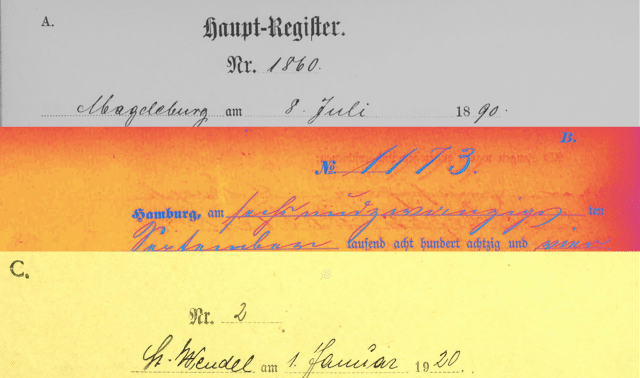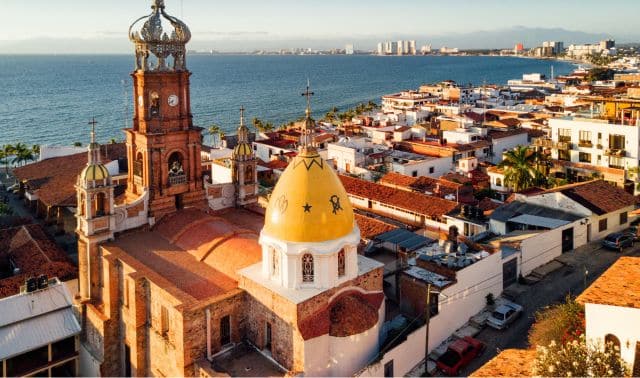Sign up for the Family Tree Newsletter! Plus, you’ll receive our 10 Essential Genealogy Research Forms PDF as a special thank you.
Get Your Free Genealogy Forms
"*" indicates required fields
Table of Contents
NOTE: Most material adapted from articles written by James M. Beidler.
Culturally rich and historically significant, Germany is a sprawling country from which over 40 million Americans claim heritage. It has also undergone notable territorial shifts, which can make pinning down ancestors challenging. Add in the language barrier that results from trying to parse German records, and you may feel overwhelmed as you try to unravel the story of your ancestors. Fortunately, there are many resources available to help you understand Germany’s volatile landscape, complex language and other nuances. Below we explore some of these resources, as well as some context to help you piece together the stories surrounding your German ancestry.
Finding Your Ancestral Hometown
The key to finding records of your ancestors back in Germany is the name of their home village (Heimat). Many stateside records can provide this detail:
- Old letters
- Newspapers
- Naturalization Records
- Tombstones
- Passenger Lists
Keep in mind as you research that you may find your ancestor’s name spelled more than one way, usually as a result of Anglicization. You may also benefit from understanding German’s administrative districts—not only so that you can avoid confusing district names for town names but also so that you can more readily tell the difference between villages with the same names.
Not to mention, as mentioned above, Germany has undergone so many territorial changes over the years. Before it became the vibrant country we know it as today, it was an eclectic patchwork of independent states. Familiarizing yourself with Germany’s historical geography can help you better piece together the story of your ancestors.
Of course, researching your German heritage may not always be as easy as simply scouring the German map. You have uncovered letters from an ancestor that are written in clear German. However, when you research said ancestors, they don’t seem to have any visible connection to Deutschland. What does this mean? Given Germany’s history, any number of reasons could have sent your ancestors elsewhere, from displacement as the result of war to the promise of opportunities elsewhere. You could also find that your ancestors hailed from neighboring countries, like Austria and Switzerland.
Understanding German Language for Genealogy
When you find records that contain vital information about your ancestors, you understandably rejoice. You may pause, however, when you realize that you cannot make out any of the words because they are all in a language you don’t understand. This is a common obstacle for those with German heritage, but do not worry; you do not have to toss those records to the side. You may in fact be able to decipher a good amount of information from them simply by understanding a few basics about the German language as a whole. Then, you can translate just a few keywords to make sense of entire documents. Translation tools can come in handy for this process.
As you delve deeply into looking for records, you may want to keep a few things in mind about the German language and German traditions as a whole:
- Scripts and Fonts: Translating common German words may be only the first step to decoding your ancestors’ records. Many old German records are written in intricate script that will likely be unfamiliar to you. Fortunately, websites like Alte Deutsche Handschriften can help you determine what specific names and locations might look like when written out.
- German Naming Traditions: As you peruse German records, you may notice that many of your ancestors share the first name—which is understandably confusing. You’ll want to look more closely at the second name; that is most likely the one by which your ancestor was known. This is just one example of nuance in German naming conventions. You will want to review these conventions closely as you research your ancestors.
- German Surnames: German surnames often fall into four distinct categories: occupational, patronymic, geographical and characteristic. Additionally, you may find that one surname is spelled differently from one document to the next. This is the result of record keepers attempting to follow English spelling conventions while also taking into consideration German pronunciation.
- World War I and Its Effects on German Language: World War I significantly influenced German-Americans’ attitude toward their language and how they used it. Once firm German speakers at home and church, German-Americans transitioned to speaking and writing in English in an effort to demonstrate their support for the Allies of the War. As a result, German newspapers grew much scarcer, and many churches adopted English as their primary record-keeping language.
Using German Genealogy Records
The Germans have always valued meticulous record keeping. Not only have they historically kept detailed records, but they have also ensured that they are preserved or duplicated to prevent losing them over time. As a result, your German ancestors’ records have likely withstood the confusion of war, territorial changes and other historical or political disruptions. Below are some commonly sought after German records and strategies for finding them as you research.
Civil Records
German civil records include such documents as birth, marriage and death records. Since 1876, Zivilstandregister has served as Germany’s comprehensive civil record system, although some areas of Germany began keeping records earlier than that. FamilySearch boasts an extensive collection worth searching through. To access more recent records, you will have to search locally and will likely have to prove that you are close family. For older records, consider looking at a local Kreisarchiv like this one.
Church Records
You will likely find church records–taken as early as the 1500s–to be the most valuable. You may find records related to birth, burial and baptism. You can find a good number of records on FamilySearch. Also look at Archion, which has thousands of church records and is frequently updated with more.
Emigration Records
Studying emigration records can tell you when your ancestors arrived from Germany and potentially why, depending on the dates of the records. Piecing together this information can help you better understand your ancestors and who they were, which can potentially lead to even more discoveries.
Manumission Records
For many, freedom from an estate and the work that came with it over resulted in a letter of manumission. Author Werner Hacker published over 10 volumes containing manumissions. You can find an English language summary with names and villages in Hacker’s Emigrants from Southwest Germany to America and Other Countries (Closson Press). Manumission records are particularly valuable for those seeking out ancestors in the 1700s to early 1800s.
Records from Nazi Germany
World War II in Nazi Germany was a dark time in human history. You may be surprised by the genealogically rich information that arose from that time. Hopeful members of the Nazi party’s military were required to submit proof of their “pure” ancestry. This resulted in unique applications complete with ancestor charts, or Ahnentafeln.
German Emigration Patterns
For ancestors who left Germany for any reason, you will want to take a close look at emigration patterns. There are two notable emigration waves observed in German states, often referred to as the “First Wave” and the “Second Wave.” These waves looked a little different in terms of who emigrated, how many emigrated, their occupations and where they ultimately ended up. Below you can find a chart explaining these differences.
| First Wave | Second Waves |
| Occurred in the 1700s | Occurred in the 1800s |
| A majority traveled east (an estimated 80,000 US immigrants) | Large-scale US immigration, an estimated 5 million |
| Mostly emigrated from Palatinate, Baden, Württemberg, Saarland and Alsace | Mostly came from Saxony, Pomerania, Prussia and Bavaria |
| Mostly Lutheran and Reformed Protestant | Many craftsmen and entrepreneurs |
Finding Early German Immigrants
If you have German ancestors who landed in Pennsylvania, you may be in luck. Passenger lists may prove to be valuable to you in your research. That’s because the colony required ship captains to keep lists of any foreign passengers on board. You can search these lists on Ancestry.com.
Germans from Prussia
Prussia was a mighty kingdom before it was absorbed by Germany. It had also undergone many dramatic territorial changes throughout its existence. This can make pinning down ancestors who lived in the region challenging. The good news is that there are strategies you can adopt to make the research process smoother. For starters, you will want to narrow down your search to your ancestor’s place of origin. You could find this information in a number of different documents, including church and vital records, censuses and immigration records.
Germans from Russia
Germans in Russia? It may seem like a strange phrase; however, genealogists with German heritage may discover this perplexing reality it old records. So, what’s the story? After the Seven Years’ War, Empress Catherine the Great desired to revitalize Russia. In an effort to do so, she invited European colonists to settle in some regions, with the promise of land and freedom of religion. Roughly 30,000 Germans seized the opportunity. Russia was not always a particularly favorable place for German speakers; in the 1870s, Czar Alexander revoked the colonies’ special status, which made prospects even less certain for many, prompting significant emigration from Russia. If you have German-speaking ancestors who migrated to Russia, you may benefit from researching the many German-speaking groups.
Germans Outside Germany
Historically, Germany has spent many centuries disunited, which has led to ethically German individuals settling all across Europe. While it can be tricky to pin down very old records concerning medieval colonists, you may be able to trace colonists after 1700s back to villages in Germany. This is because church records have largely withstood the test of time.
German Genealogy Websites and Resources
Thanks to the internet, you can access many valuable German genealogy resources with a mere click. Several websites may even contain all you need to make meaningful discoveries about your German ancestors—or at least give you a clear path to finding them. Some of the most valuable German genealogy websites include:
- Archion.de: The result of several Lutheran church archives coming together to preserve their records online, Archion.de is a wonderful resource for finding more than 175,000 church books. Explore 25 unique archives and download the pages that you need.
- Compgen.de: Run by the Society for Computer Genealogy, Inc., the largest genealogy group in Germany, Compgen.de contains an extensive collection of documents, databases and more. Though most of the website is in German, there are several pages available in English. Even those not available in English can be incredibly valuable with a handy translation tool. You don’t need an account to enjoy many of its search functions, but you will need to create one if you wish to upload a family tree. Our guide provides a detailed breakdown of this tool and all you need to know about navigating its rich resources.
- Cyndi’s List: This expansive directory can help you find the information you desire in just a few clicks—whether that information be military records, maps or libraries. Also find plenty of sources on related topics, like the World Wars and nearby countries.
- FamilySearch Wiki – Germany: Explore various records and an interactive German map.
- Google Translate: This tool will prove useful as you peruse records in German and need help decoding certain words and phrases.
- Kartenmeister: By now, you understand just how much territorial changes can affect your genealogy research, especially when it comes to Germany and its surrounding regions. Kartenmeister is great specifically for those seeking out ancestors who lived in regions of what was once eastern Prussia. Find over 110,000 locations, plus thousands of name changes. Best of all, the website is simple to search and navigate.
- Meyers Gazetteer: Research the places your German ancestors have lived from the comfort of your living room with this handy website. Meyers Gazetteer contains a sprawling list of place names, specifically those in the Second German Empire. This time period spans several decades.
- Portal Archive in Baden-Württemburg: Use this directory to search for various archives, including state and district, towns and communities and even businesses and universities.
Books
- Ancestors in German Archives by Saskia Schier Bunting, Mirjam J, Kirkham, Nathan S. Rives and Raymond S. Wright (Genealogical Publishing Co.)
- Eighteenth Century Register of Emigrants from Southwest Germany to America and Other Countries by Werner Hacker (Closson Press)
- A Genealogist’s Guide to Discovering Your Germanic Ancestors by S. Chris Anderson and Ernest Thode (Betterway Books)
- The German Research Companion by Shirley J. Riemer (Lorelei Press)
- If I Can, You Can: Decipher Germanic Records by Edna M. Bentz (self-published)
- In Search of Your German Roots by Angus Baxter (Genealogical Publishing Co.)
- Master Index to the Emigrants Documented in the Published Works of Annette Kunselman Burgert by Annette K. Burgert (AKB Publications)
- The Palatine Families of New York, 1710 by Henry Z. Jones Jr. (self-published)
Genealogy Groups and Archives
- Archives in Hessen
- German Genealogy Group
- Germanic Genealogical Society
- Koblenz City Archives (Staatsarchiv Koblenz)
- Mid-Atlantic Germanic Society
- Palatine Institute for History and Customs
- Palatines to America
- Pennsylvania German Society
- Sacramento German Genealogical Society
- Schleswig-Holstein Archives
- Society for German Genealogy in Eastern Europe
- Speyer City Archives





